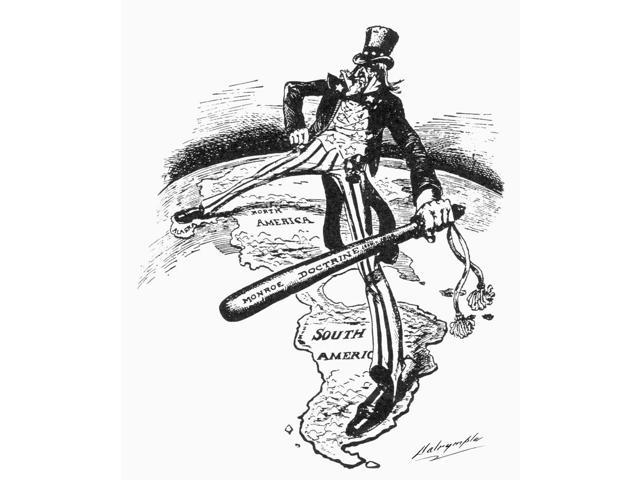The Monroe Doctrine basically is that Europe will not interfere in American affairs, America is not longer dependent to Europe.
On December 2, 1823, the president James Monroe used his annual message to Congress for a bold assertion: “The American continents … are henceforth not to be considered as subjects for future colonization by any European powers.” The Monroe Doctrine became a cornerstone of American foreign policy. The Secretary of State John Quincy Adams had played the most important role in developing the wording of the declaration, and he also influenced the doctrine’s overall shape.

Monroe declared that the Old World and New World had different systems and must remain distinct spheres, Monroe made four basic points:
1. The United States would not interfere in the internal affairs of or the wars between European powers.
2. The United States recognized and would not interfere with existing colonies and dependencies in the Western Hemisphere.
3. The Western Hemisphere was closed to future colonization.
4. Any attempt by a European power to oppress or control any nation in the Western Hemisphere would be viewed as a hostile act against the United States.
The doctrine was an outgrowth of concern in both Britain and the United States that the continental powers would attempt to restore Spain’s former colonies, in Latin America, many of which had become newly independent nations. The United States was also concerned about Russia’s territorial ambitions in the northwest coast of North America. As a consequence, George Canning, the British foreign minister, suggested a joint U.S.-British declaration forbidding future colonization in Latin America. Monroe was initially favourable to the idea, and former presidents Thomas Jefferson and James Madison concurred. But Secretary of State John Quincy Adams argued that the United States should issue a statement of American policy exclusively, and his view ultimately prevailed.

After 1870 interpretation of the Monroe Doctrine became increasingly broad. As the United States emerged as a world power, the Monroe Doctrine came to define a recognized sphere of influence. Pres. Theodore Roosevelt added the Roosevelt Corollary to the Monroe Doctrine in 1904, which stated that, in cases of flagrant and chronic wrongdoing by a Latin American country, the United States could intervene in that country’s internal affairs. Roosevelt’s assertion of hemispheric police power was designed to preclude violation of the Monroe Doctrine by European countries seeking redress of grievances against unruly or mismanaged Latin American states.

From the presidency of Theodore Roosevelt to that of Franklin Roosevelt, the United States frequently intervened in Latin America, especially in the Caribbean. Since the 1930s the United States has attempted to formulate its Latin American foreign policy in consultation with the individual nations of the hemisphere and with the Organization of American States. Yet the United States continues to exercise a proprietary role at times of apparent threat to its national security, and the Western Hemisphere remains a predominantly U.S. sphere of influence.
